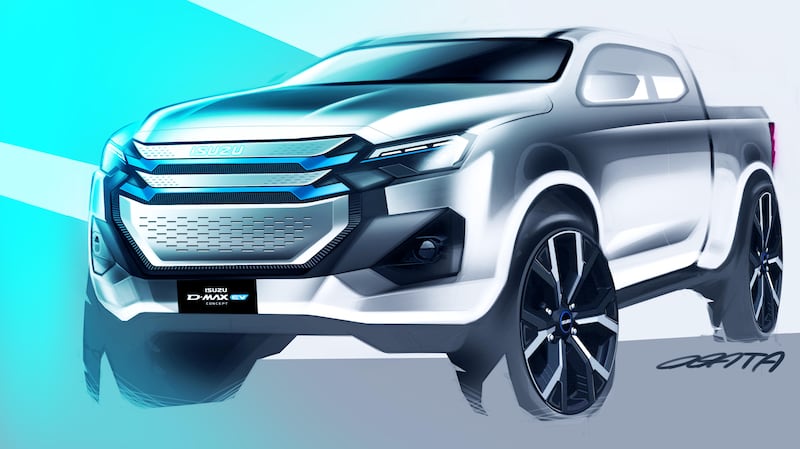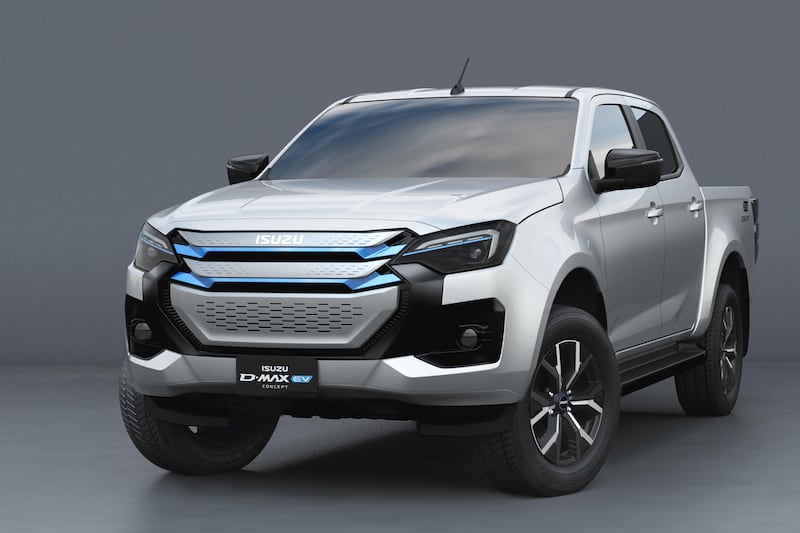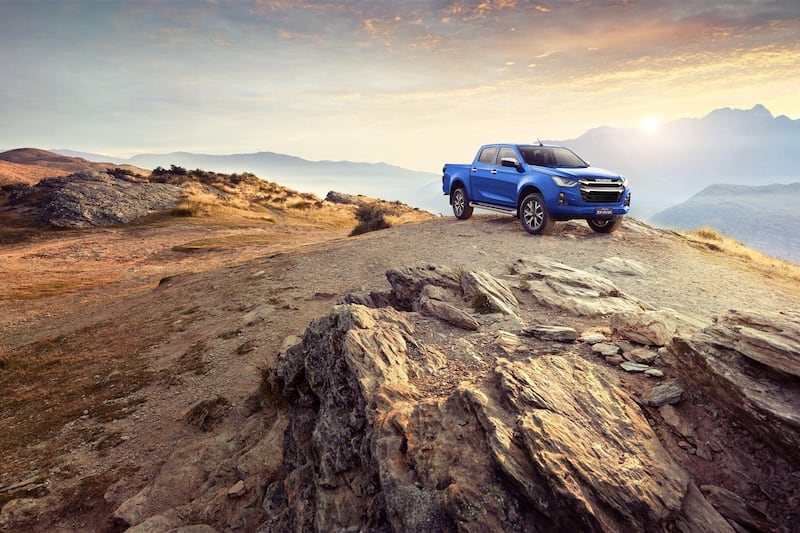Isuzu has revealed an electric version of its popular workhorse, the D-Max pick-up truck.
The Toyota Hilux rival has always been a dependable choice among buyers, but this new electric version ditches its conventional diesel engine in favour of a battery-powered setup.
It will come with a full-time four-wheel-drive system thanks to newly developed e-Axles at the front and rear while this setup allows for a towing capacity of up to 3.5 tonnes. Though Isuzu has stated that the D-Max electric will feature a 66.9kWh battery, it hasn’t revealed a total range figure.

Source: Isuzu UK
The electric motor, meanwhile, will produce 174bhp and will give the D-Max BEV a top speed of 81 mph.
Alan Able, managing director of Isuzu UK said, “The Isuzu D-Max BEV represents a new era for pick-up trucks, combining the legendary toughness of the D-Max with electric technology.”
The D-Max electric will be shown to the public for the time at the Bangkok International Motor Show running from March 27 to April 7 2024.
A spokesperson from Isuzu Motors International Operations Thailand, said:“The Isuzu D-Max BEV represents a new chapter in our commitment to sustainable mobility. With its innovative electric powertrain and rugged design, it demonstrates our dedication to providing customers with reliable and environmentally friendly transportation solutions.”
Isuzu plans to launch the D-Max BEV in mainland European markets in 2025, with further expansion to the UK, Australia, Thailand and other countries based on demand and their electric vehicle charging infrastructure.







